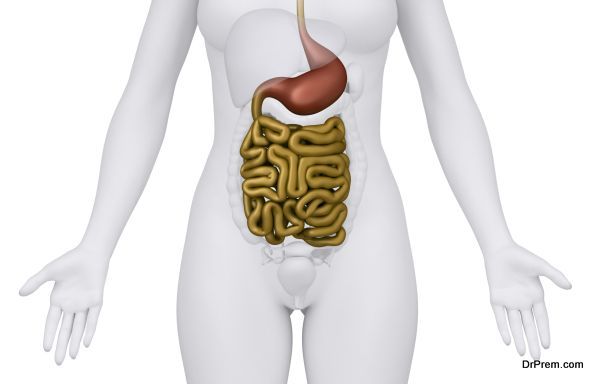Caffeine is admired by millions of people for being an aphrodisiac and a neurostimulator. Although it is quite a valid point that caffeine has its own perks and benefits, caffeine overdose can be problematic too. Read on further to know how drinking too much coffee can be harmful and ways to avoid.
How much is too much?
 According to the recommended limit offered by the World Health Organization, about 400 milligrams of caffeine can be safe for many healthy adults. This can be related to the amount of caffeine obtained from roughly around 4 cups of brewed caffeine. Some admirers of aerated drinks may feel that they are safe for not having caffeine overdose, but should as well note that they may exceed recommended limit of caffeine by consuming 10 cans of cola or even due to two energy shots.
According to the recommended limit offered by the World Health Organization, about 400 milligrams of caffeine can be safe for many healthy adults. This can be related to the amount of caffeine obtained from roughly around 4 cups of brewed caffeine. Some admirers of aerated drinks may feel that they are safe for not having caffeine overdose, but should as well note that they may exceed recommended limit of caffeine by consuming 10 cans of cola or even due to two energy shots.
It should further be noted that children with caffeine can never be a healthy combination; and it is always suggested by experts that pregnant women and children should limit the caffeine consumption, in order to avoid its unpleasant side effects.
How can you detect caffeine overdose?
 As per the reported data and relevant clinical studies, symptoms associated with caffeine overdose can be noted herewith and should be avoided in their initial phase before taking a toll with more severe issues.
As per the reported data and relevant clinical studies, symptoms associated with caffeine overdose can be noted herewith and should be avoided in their initial phase before taking a toll with more severe issues.
- Unusual nervousness, restlessness
- Arrhythmia
- Insomnia, sleepless nights
- Night sweating
- Anxiety
- Vomiting
- Cardiac arrest
- Muscular tremors
The list of symptoms depicted herewith are more prevalent; however it is important to be able to recognize the symptoms in the initial phase of life, otherwise, a person may have to face a number of more serious complications.
How common is caffeine overdose?
There is a number of products available in the current market, which contain caffeine; and hence, chances of consuming too much of products are very high. After an analysis of statistical report proposed by the American Association of Poison Control Centers, caffeine overdose has been in a significant proportion and should never be underestimated.
What are the long-term side effects of caffeine?
Anxiety

Caffeine is known to be as the neurostimulator and is used widely to improve mental alertness. Studies have investigated that caffeine blocks the effects of chemical indicator of tiredness, the adenosine; and at the same time, stimulated overproduction of adrenaline hormone. The hormone adrenaline is being secreted by the body against fight and flight response for producing extra energy.
However, studies have also indicated that caffeine overdose may lead to profound anxiety for the longer period, leading to unnecessary nervousness. As a matter of fact, caffeine associated anxiety has been listed to be one of the major issues leading to mental disorders; and are being approved by the American Psychiatric Association.
It is always better to limit caffeine consumption from moderate to low doses.
Insomnia
Many people reported insomnia i.e. number of sleepless nights because of the caffeine overdose. Studies have evaluated that more consumption of caffeine may have a profound impact on the amount of restorative sleep. By contrast, a regular cup of a coffee is not going to make any impact, but too much is always dangerous, to the extent that you may not even realize that it is harming your body.
High Blood Pressure

In general, caffeine was previously thought to be responsible for increased cardiovascular disorders and stroke; however, there are no reported evidence for this hypothesis. However, several studies have reported that neurostimulator property of caffeine may restrict the flow of oxygenated blood towards the heart and the brain; which may aggravate health issues like cardiovascular diseases and/or stroke.
Muscular Breakdown
Several reports have been generated from clinical investigations conducted worldwide that caffeine plays an important role in causing a muscular breakdown. Experts have further proposed that rhabdomyolysis is a very dangerous condition when muscles fibers are damaged and broken down to the level of being secreted in the blood circulation. The condition if ignored for a longer period of time, may give rise to kidney damage or damage of other important muscular organs, like a heart.
Some of the common causes of rhabdomyolysis can be muscular trauma, excessive consumption of neurostimulator, like caffeine overdose, drug abuse etc.
Digestive tract issues

Many of us follow a routine of sipping a cup of coffee, especially in the morning to help them get a smooth bowel. This laxative effect of coffee is attributed to the release of the hormone gastrin, which is responsible for speedy colon activity. Yet another study has proven that caffeine increases peristaltic movement of the intestinal contraction, in order to pass on the food through the digestive tract.
Thus, experts have come to the conclusion that caffeine overdose may increase issues associated with digestive tract by creating an imbalance in the gastroesophageal influx.
Arrhythmia and fatigue
The stimulatory effects of the high amount of caffeine and caffeine overdose have proven to be responsible for irregular heartbeats, known as arrhythmia. Further negligence towards the issue can cause atrial fibrillation and is being characterized as irregular heartbeat leading to a low oxygenated supply of blood towards the important organs of the body.
Another important review published recently in one of the prestigious health journals has clarified that caffeine was definitely one of the leading factors responsible for increasing mental alertness and improved mood for several significant hours, in almost 41 study participants, but was also responsible for increased fatigue in all of them. The scientists justified the outcome, by proposing the rebound effect of the caffeine overdose, once the caffeine leaves the system.
Frequent urination
 Increased urination or continuous urge to urinate is one of the most familiar side effects of caffeine overdose, but continuous ignorance towards the condition may lead to bladder incontinence; characterized with severe kidney failures.
Increased urination or continuous urge to urinate is one of the most familiar side effects of caffeine overdose, but continuous ignorance towards the condition may lead to bladder incontinence; characterized with severe kidney failures.
How to quit caffeine?
Although, one of the best ways to combat the negative effect of caffeine overdose is to quit the same slowly as well as gradually, experts have proposed that application of wean caffeine supplement can be helpful by providing a daily preset amount of caffeine to an addicted individual. Each pill of the supplement has less amount of caffeine than the previous one and is also combined with L-theanine, which is further known for its caffeine withdrawal properties.


